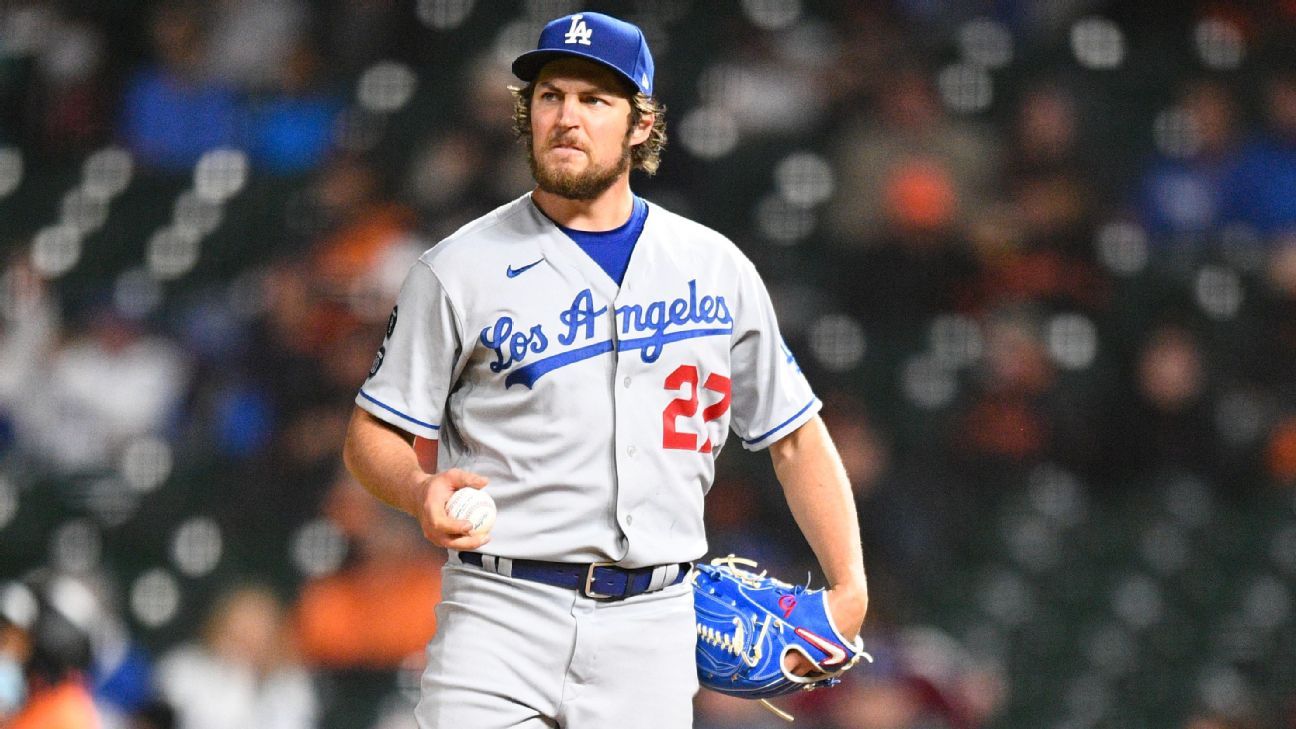On Thursday night, Major League Baseball announced that Trevor Bauer‘s 324-game suspension had been reduced to 194 games by an independent arbitrator. Bauer is eligible to return to baseball immediately, after the arbitrator applied credit for the time he was on the restricted list in the second half of 2021. But what went into the decision? And what is Bauer’s future in MLB? We break down the biggest questions surrounding the pitcher’s potential return.
Why was Bauer suspended last year?
Bauer was suspended on the grounds of sexual misconduct, but the league has never released the full findings of its nine-month investigation. We know a woman in San Diego accused him of taking rough sex too far in April and May 2021 and requested a temporary restraining order against him later that summer, triggering a prolonged investigation by MLB. And we know that two other women, both from Ohio, made similar allegations while speaking to The Washington Post. Whether there are any other alleged victims, or other women with whom the league spoke, isn’t public, due to the confidentiality provisions of the domestic violence policy.
Bauer has forcefully denied any wrongdoing, claiming that any sexual acts were consensual. The Los Angeles District Attorney’s Office declined to prosecute him in February, but under the domestic violence policy that was jointly agreed to by MLB and the union in August 2015, MLB commissioner Rob Manfred has the authority to punish players for “just cause”; he does not need to meet the guilt-beyond-a-reasonable-doubt threshold required by law enforcement. On that ground, MLB felt Bauer deserved to be suspended far longer than any player ever had for a domestic violence violation. A third party agreed to this ruling, though to a lesser extent.
Who made the decision to reduce the suspension?
A man named Martin Scheinman, who serves as an independent arbitrator retained by both MLB and the MLB Players’ Association. In short spurts over the course of seven months, Scheinman served as the head of a three-person panel — also consisting of an MLB representative and a rep from the MLBPA — that reviewed MLB’s findings and spoke to witnesses. Most of the interviews took place over video conference. Details were not made public, but a Washington Post story released Thursday said that at least two accusers testified from MLB headquarters and more than 20 witnesses were called. The Post story added that the process revolved mostly around the three women whose allegations became public. The San Diego woman whose allegation ignited this process testified three separate times, a source with knowledge of the situation said.
What exactly did he decide?
The arbitrator reduced Bauer’s suspension by 130 games, but still ruled that Bauer deserved the longest suspension ever under the domestic violence policy (the previous high was 162 games). Bauer served 144 games of his suspension in 2022, which would have left 50 for 2023. But something of a compromise was made: Scheinman essentially gave Bauer partial credit for spending the second half of the 2021 season — beginning July 2, after the first accusations became public — on paid administrative leave. Bauer will be docked pay for the first 50 games of the 2023 season, but he will be reinstated immediately.
What does this mean for Bauer’s future in MLB?
Because of that compromise, Bauer will be eligible to pitch on Opening Day. As of now, he remains under contract with the Los Angeles Dodgers for the final season of a three-year, $102 million contract he signed before the 2021 season. Regardless of whether the Dodgers roster Bauer next year, they will owe him about $22.5 million of his original $32 million salary — unless he signs with another team, which would be on the hook for $720,000, the major league minimum salary.
Bauer last pitched in a major league game June 28, 2021. In his first 17 starts with the Dodgers, he posted a 2.59 ERA and struck out 137 in 107⅔ innings. In the COVID-19-shortened 2020 season, Bauer won the National League Cy Young Award. He has continued training at his Phoenix-area facility, where he regularly posts videos of him throwing.
What does this mean for the Dodgers?
The first question for the Dodgers is simple: Do they bring back Bauer or release him? They have given no indication publicly on what they intend to do — the team in a statement Thursday night said it would comment “as soon as practical” — but a number of players in the Dodgers’ clubhouse have privately advocated for the team to cut ties, regardless of the outcome of his appeal. The Dodgers must decide whether to roster or cut Bauer by Jan. 6.
In terms of Bauer’s salary impact, the arbitrator’s decision did alleviate some of the pressure on the Dodgers’ competitive balance tax. Currently, according to Baseball Prospectus, Los Angeles’ estimated CBT payroll for the 2023 season is $199 million. Bauer’s salary for a full season was supposed to count for $34 million — the average annual value of his deal — toward the Dodgers’ CBT number. But by docking Bauer for 50 games of pay, a source said, the arbitrator reduced the Dodgers’ luxury tax burden by nearly $9.5 million. That would keep them under the $233 million threshold, which they would have exceeded at Bauer’s full salary.
If the Dodgers do exceed the threshold for the third consecutive season, the base tax rate for every dollar spent from $233 million to $253 million would be taxed 50%. Any money between $253 million and $273 million would be subject to a 62% penalty. From $273 million to $293 million, it would be 95%, and anything above $293 million would be 110%, though the Dodgers are extremely unlikely to come close to the upper thresholds and could potentially stay beneath the lowest.


